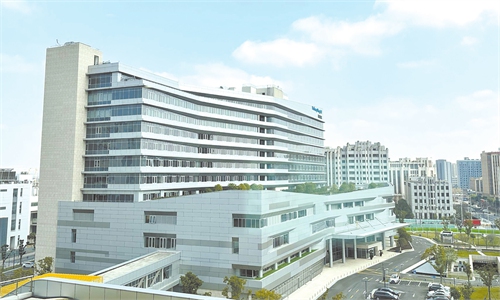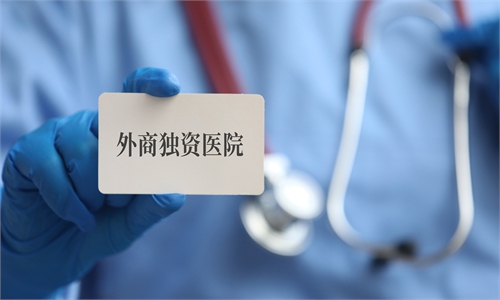First wholly foreign-owned tertiary general hospital gets business license in Tianjin

A medical ward in a hospital File photo: VCG
North China's Tianjin Municipality granted China's first medical institution practice license to a wholly foreign-owned general hospital on Monday, marking a first move since the country unveiled its plan in November to allow the establishment of wholly foreign-owned hospitals in a number of major cities, a move to further open up its medical sector.
The hospital, a tertiary general hospital with 500 beds, will be invested and built by Singapore Perennial Holdings and is located in the Xiqing district, Tianjin, taking advantage of the convenient transportation location around the Tianjin South Railway Station to extend its service scope to include patients from the Beijing-Tianjin-Hebei region, according to a company press release.
A Chinese analyst said the move has demonstrated a stronger commitment to openness made by the Chinese government and highlighted China's resolve to steadily enhance institutional opening-up, which will boost foreign investors' confidence.
It will be staffed with a team of high-level foreign medical experts, working in special departments such as orthopedics, immune disease, cardiovascular disease and oncology, among others.
The hospital will need to secure a number of administrative permits before officially opening up for business and taking in patients, the China Central Television reported.
Perennial Holdings said the tertiary multi-disciplined hospital, developed and equipped at a total investment cost of 1 billion yuan ($137 million), is expected to commence operations soon.
The hospital will also have an international department that focuses on providing customized medical services such as health maintenance, chronic disease management and critical illness rehabilitation.
The announcement by the Singaporean hospital follows the Shenzhen municipal government announcing a deal that will lead to the setup of a wholly foreign-owned specialty hospital in the city, also a first in China.
Li Yong, a senior research fellow at the China Association of International Trade, told the Global Times on Monday that the recent development demonstrated that China is steady in its push to introduce more policies for voluntary and unilateral opening up and sees the setting up of wholly foreign owned hospitals as a major part of that push.
"It also shows that the sector is of great interest to foreign investors... their business decision to open up shop here is a vote of confidence over the projected yields of their investment," Li said.
In November, the National Health Commission (NHC) and three other government departments issued a pilot work plan to grant approval of wholly foreign-owned hospitals to the cities of Beijing, Tianjin, Shanghai, Nanjing, Suzhou, Fuzhou, Guangzhou and Shenzhen, as well as the island province of Hainan.
According to the NHC, the nine pilot regions in the pilot program are home to dense populations and robust health demand, accounting for about over 45 percent of China's utilized foreign capital.
The China Research Center on Aging predicts that the silver economy, which include tourism, food, elderly care, healthcare device and financial services industries, could grow from its current value of 7 trillion yuan to 30 trillion yuan by 2035, according to the Xinhua News Agency.



